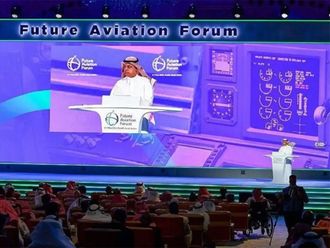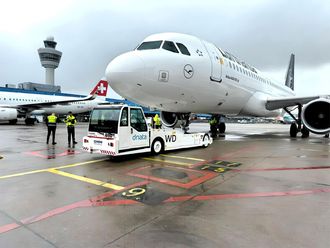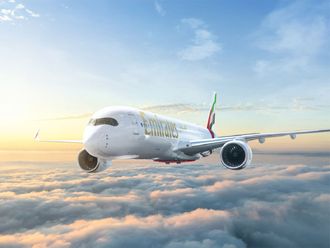TOULOUSE, FRANCE: Airbus SE predicted that burgeoning demand for air travel will push jetliner sales to almost 35,000 aircraft over 20 years, about 6 per cent more than previously forecast, with deliveries worth about $5.3 trillion to manufacturers.
Passenger traffic is set to grow 4.4 per cent annually over the period, slightly less than the 4.5 per cent estimated last year. That will still lead to a doubling of the wider commercial fleet to more than 40,000 aircraft, including older models remaining in service, Airbus said Friday in its 2017 global market forecast.
Plane purchases will be spurred by increasing numbers of first time flyers as disposable incomes gain, especially in Asia, according to the manufacturer, as well as increasing industry liberalisation and the opening of routes made viable by the latest models. All told, there will be demand for 34,170 new passenger planes and 730 freighters, Airbus said. Combined, that’s 1,829 more deliveries than forecast in its two-decade study in 2016.
More than 70 per cent of new aircraft are forecast to be single-aisle models, the company said. Fleet expansions will account for 60 per cent of total new deliveries and replacements of less fuel-efficient models will contribute 40 per cent.
“Air travel is remarkably resilient to external shocks,” John Leahy, Airbus’s chief salesman, said in a presentation at the company’s headquarters in Toulouse, France. China will become the world’s largest aviation market, while in emerging economies as a whole “the number of people taking a flight will nearly triple between now and 2036,” he predicted.
The Asia-Pacific region will account for 41 per cent of new deliveries through 2036, followed by Europe with 20 per cent and North America at 16 per cent, Airbus said.
About 10,100 twin-aisle aircraft will be required, valued at $2.9 trillion, together with 24,810 single-aisle planes worth $2.4 trillion.












